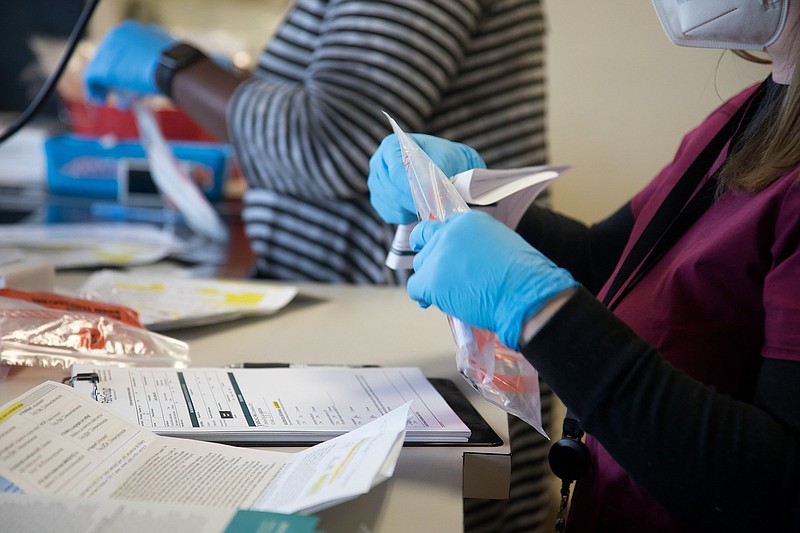Capping off an unprecedented surge of new COVID-19 cases and hospitalizations in the past five weeks, November was the deadliest month for the coronavirus in Hamilton County, killing 44 county residents.
The death record surpassed the previous high mark of 27 local deaths in August and November was the deadliest month for a 21-county region that includes Hamilton County in Southeast Tennessee, Northwest Georgia and Northeast Alabama, as well. In that region, 199 people died of the virus in November. The previous high was 143 people in October.
The trend that began in the final week of October is likely to get even worse as the colder months force more people indoors and millions of Americans may have been exposed to or spread the virus through Thanksgiving gatherings last week.
Despite the calls of elected officials and public health leaders to stay home, millions of Americans traveled across the country for the holiday, although in smaller numbers than in previous years. In the four days leading up to Thanksgiving more than 3.9 million people traveled through Transportation Security Administration checkpoints, according to data from the organization. That's about 40% of the volume TSA recorded in 2019.
In a series of weekend interviews, Dr. Anthony Fauci, director of the National Institute of Allergy and Infectious Diseases, urged caution for those who traveled and warned that the nation's COVID-19 outbreak will likely get worse. Fauci told ABC's "This Week" the country "may see a surge upon a surge" after the holiday.
The coronavirus can take between two and 14 days to show symptoms if a person is infected. Hospitalization may last more than a week, if necessary, and deaths can come weeks after infection. This means any meaningful Thanksgiving bump in cases, hospitalizations or deaths may not be reported until well into December.
Dr. Deborah L. Birx, who leads the White House coronavirus response, told viewers of CBS' "Face the Nation" on Sunday that the United States saw jumps in cases after holidays such as Memorial Day, but that came at a time when the virus was less widespread than the current moment. People who gathered for Thanksgiving or over the weekend should act as though they are infected and isolate themselves, she said.
(READ MORE: Tennessee hospitals discuss sending COVID-19-positive staff to work amid worker shortages)
The worry about increased spread and a possible spike in deaths comes as promising news about COVID-19 vaccines continues. On Monday, Moderna announced it would apply for emergency use from the Food and Drug Administration for its vaccine, which has been 94% effective in initial tests. The first doses of the vaccine could be given as early as Dec. 21, according to the announcement.
Tennesseans will receive doses of Pfizer's vaccine, which could be available for some residents as early as Dec. 15, the state reported last week. Dr. Lisa Piercey, commissioner of the Tennessee Department of Health, said the first shipment should be between 80,000 and 100,000 doses. Each person will need two doses of that vaccine spaced several weeks apart, meaning the first allotment will cover between 40,000 and 50,000 people.
On Monday, the Hamilton County Health Department reported 310 new infections and 128 total hospitalizations, with 32 people in the intensive care unit with the virus.
The increasing hospitalization numbers have stressed local hospitals and their staff, though emergency plans that allow health care workers sick with COVID-19 to continue working have yet to be implemented.
Contact Wyatt Massey at wmassey@timesfreepress.com or 423-757-6249. Follow him on Twitter @news4mass.
